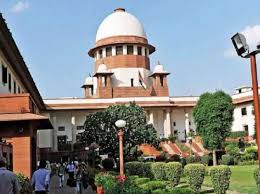(A) Criminal Procedure Code, 1973, Section 438 – Anticipatory bail – Proclaimed offender – Offence under Sections 341, 323, 354, 354 (B), 379, 504, 506 and 149 IPC and Section 3/4 of Prevention of Witch (Daain) Practices Act, 1999 – Contention of the appellants that the rejection of the application for anticipatory bail without considering the application on merits for the reason of issuance of proclamation under Section 82, Cr. PC, is unsustainable and that they were only pursuing their right to file application for anticipatory bail and, therefore, they were not either evading the arrest or absconding –Held that filing of an anticipatory bail through an advocate would not and could not be treated as appearance before a court by a person against whom such proceedings are instituted – In the absence of any interim order, pendency of an application for anticipatory bail shall not bar the Trial Court in issuing/proceeding with steps for proclamation and in taking steps under Section 83, Cr.PC, in accordance with law – Though the appellants filed an application, which they themselves described as “bail-cum-surrender application” on 23.08.2022, they got it withdrawn on the fear of being arrested – Even after the issuance of non-bailable warrants on 03.11.2022 they did not care to appear before the Trial Court and did not apply for regular bail after its recalling – It is a fact that even after coming to know about the proclamation under Section 82 Cr.PC., they did not take any steps to challenge the same or to enter appearance before the Trial Court to avert the consequences – Held that such conduct of the appellants did not entitle them to seek the benefit of pre-arrest bail – There is no ground for interfering with the order of the High Court rejecting the application for anticipatory bail rather not considering application on merits. (Para 25 and 26)
(B) Criminal Procedure Code, 1973, Section 438 – Anticipatory bail – Interim order – Held that taking into consideration the factors enumerated under Section 438 Cr.P.C. the Court may either reject the application forthwith or issue an interim order for the grant of anticipatory bail – The proviso there under would reveal that if the High Court or, the Court of Sessions, as the case may be, did not pass an interim order under this Section or has rejected the application for grant of anticipatory bail, it shall be open to an officer in-charge of a police station to arrest the person concerned without warrant, on the basis of the accusation apprehended in such application – In view of the proviso under Section438(1), Cr.PC, it cannot be contended that if, at the stage of taking up the matter for consideration, the Court is not rejecting the application, it is bound to pass an interim order for the grant of anticipatory bail –Nothing prevents the court from adjourning such an application without passing an interim order. (Para 23)
(C) Criminal Procedure Code, 1973, Section 82 – Criminal Procedure – Terms ‘absconded’ – The use of expression ‘reason to believe’ employed in Section 82 (1) Cr. PC would suggest that the Magistrate concerned must be subjectively satisfied that the person concerned has absconded or has concealed himself – Term ‘absconded’ in its etymological and ordinary sense is that one who is hiding himself or concealing himself and avoiding arrest. (Para 11)
SUPREME COURT OF INDIA
2024 STPL(Web) 166 SC
[2024 INSC 202]
Srikant Upadhyay & Ors. Vs. State Of Bihar & Anr
Criminal Appeal No. of 2024 (@Special Leave Petition (Crl.) No.7940 of 2023)-Decided on 14-03-2024
https://stpllaw.in/wp-content/uploads/2024/04/2024-STPLWeb-166-SC.pdf







